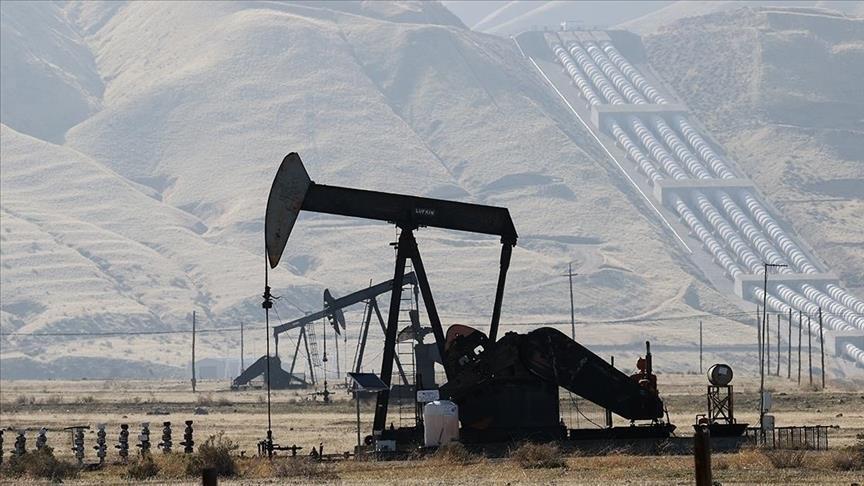Oil prices were under pressure early Wednesday due to diplomatic efforts toward peace in the Russia-Ukraine war and the US decision to impose additional tariffs on India.
Brent crude was trading at $66.45 per barrel at 9.30 a.m. local time (0630 GMT), down 0.4% from the previous close of $66.76.
US benchmark West Texas Intermediate (WTI) fell 0.4% to $63.01 from $63.16 in the prior session.
US President Donald Trump's Special Envoy for the Middle East, Steve Witkoff, said this week that talks will be held on Ukraine, Iran and Gaza, with the aim of resolving ongoing conflicts by the end of the year.
Trump also warned that Washington would impose severe sanctions on Moscow if no agreement is reached with Kyiv, dismissing some Russian statements as mere "posturing".
Peace initiatives have eased market concerns over supply disruptions, pushing prices lower.
Meanwhile, reports that Trump’s decision to impose additional tariffs on India have further weighed on prices.
Trump signed an executive order on Aug. 6 stipulating a 25% tariff on Indian imports in response to New Delhi's continued purchases of Russian oil. The measure was announced to take effect on Aug. 27.
Analysts said tit-for-tat tariff moves could suppress energy demand in the short term and drag prices down, though Indian refiners are expected to maintain Russian oil imports as long as cost advantages remain.
Meanwhile, Trump's unexpected dismissal of US Federal Reserve (Fed) Board member Lisa Cook has heightened concerns over the central bank's independence, preventing a deeper decline in oil prices.
A Fed spokesperson said Cook would challenge the president's move in court to retain her post, adding that the central bank would comply with the judicial outcome.
Trump said on social media Monday that he dismissed Cook under authority granted by the Fed Act, claiming there was sufficient reason to believe she had misrepresented information on one or more mortgage contracts.
According to Trump, Cook signed documents pledging two separate properties as her primary residence within two weeks of each other.
Analysts warned that the move risks undermining confidence in the Fed's independence, while investors saw it as an unprecedented intervention in disputes between the administration and the central bank.
By Humeyra Ayaz
Anadolu Agency
energy@aa.com.tr


